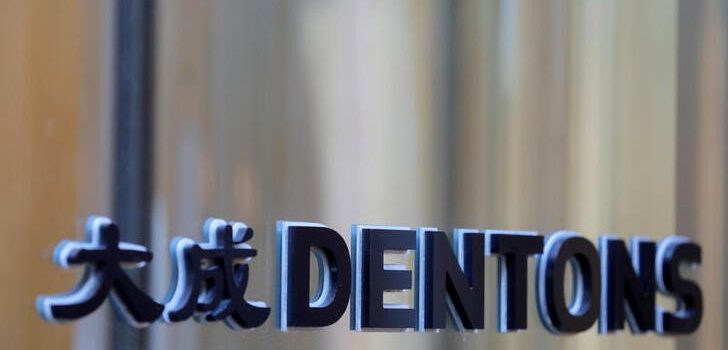
Dentons’ Presence in China: A Brief Overview
Dentons, one of the world’s largest and most prominent law firms, has long maintained a significant presence in China. With a commitment to providing legal services across a wide spectrum of industries, Dentons’ operations in China have been closely intertwined with the country’s evolving economic and regulatory landscape. However, recent developments have prompted Dentons to make a significant decision regarding its China business.

Regulatory Landscape Shift: Beijing’s Tightening Control
In the wake of Beijing’s increasingly stringent regulatory measures, multinational companies operating in China have found themselves facing new challenges and uncertainties. The Chinese government’s efforts to tighten control over various sectors, including technology, finance, and foreign investment, have led to a reevaluation of business strategies and operational models. Dentons, like many other firms, has been impacted by these regulatory changes, prompting a strategic response.
Strategic Move: Dentons’ Decision to Hive Off China Business
In a move that underscores the shifting dynamics of doing business in China, Dentons has decided to hive off its China business. This decision reflects Dentons’ proactive approach to adapt to changing circumstances and align its operations with the evolving regulatory environment. By separating its China business from its global operations, Dentons aims to ensure compliance with the latest regulations and navigate potential challenges more effectively. The decision to hive off the China business is not taken lightly. Dentons has a long history in the region, and its relationships with clients, partners, and stakeholders have contributed to its success. However, the decision underscores the importance of flexibility and agility in responding to regulatory shifts that can impact business operations.
Navigating the Future: Challenges and Opportunities for Dentons
As Dentons embarks on this significant transition, it faces a range of challenges and opportunities. On one hand, the separation of its China business may pose operational complexities, including potential changes in staffing, client relationships, and service delivery. Dentons will need to ensure a seamless transition to minimize disruptions and uphold its reputation for quality legal services. On the other hand, this move presents opportunities for Dentons to further refine its global strategy and explore new avenues for growth. By strategically managing its China business, Dentons can focus on enhancing its offerings in other regions and sectors, leveraging its expertise to meet the evolving needs of clients worldwide. This strategic recalibration aligns with Dentons’ commitment to innovation and client-centric solutions.
Conclusion
Dentons’ decision to hive off its China business in response to Beijing’s tightening regulatory landscape reflects the complex interplay between global businesses and evolving government policies. As regulatory measures continue to reshape the business environment in China, multinational firms are compelled to make strategic decisions that ensure compliance and sustainability. Dentons’ move highlights the importance of adaptability and foresight in an era of rapid regulatory changes. While challenges undoubtedly accompany such significant decisions, Dentons’ proactive approach demonstrates its dedication to maintaining its leadership position and upholding its commitment to clients. As the legal landscape continues to evolve, Dentons’ ability to navigate complexities and seize opportunities will contribute to its enduring success on both a global and regional scale.










